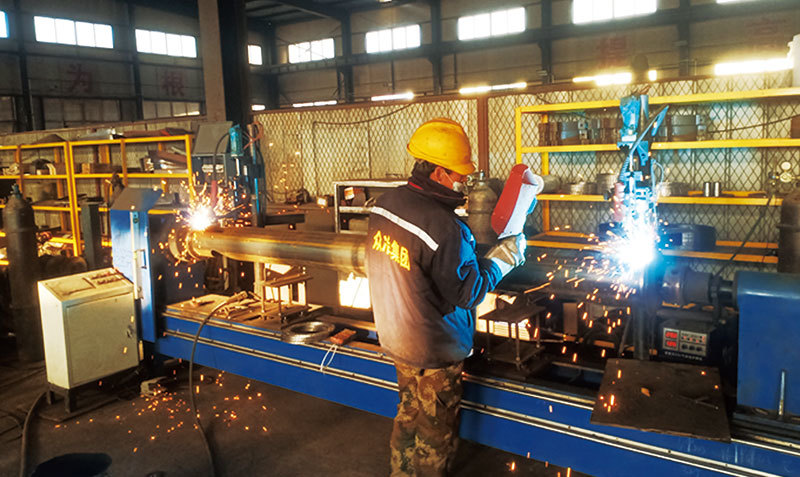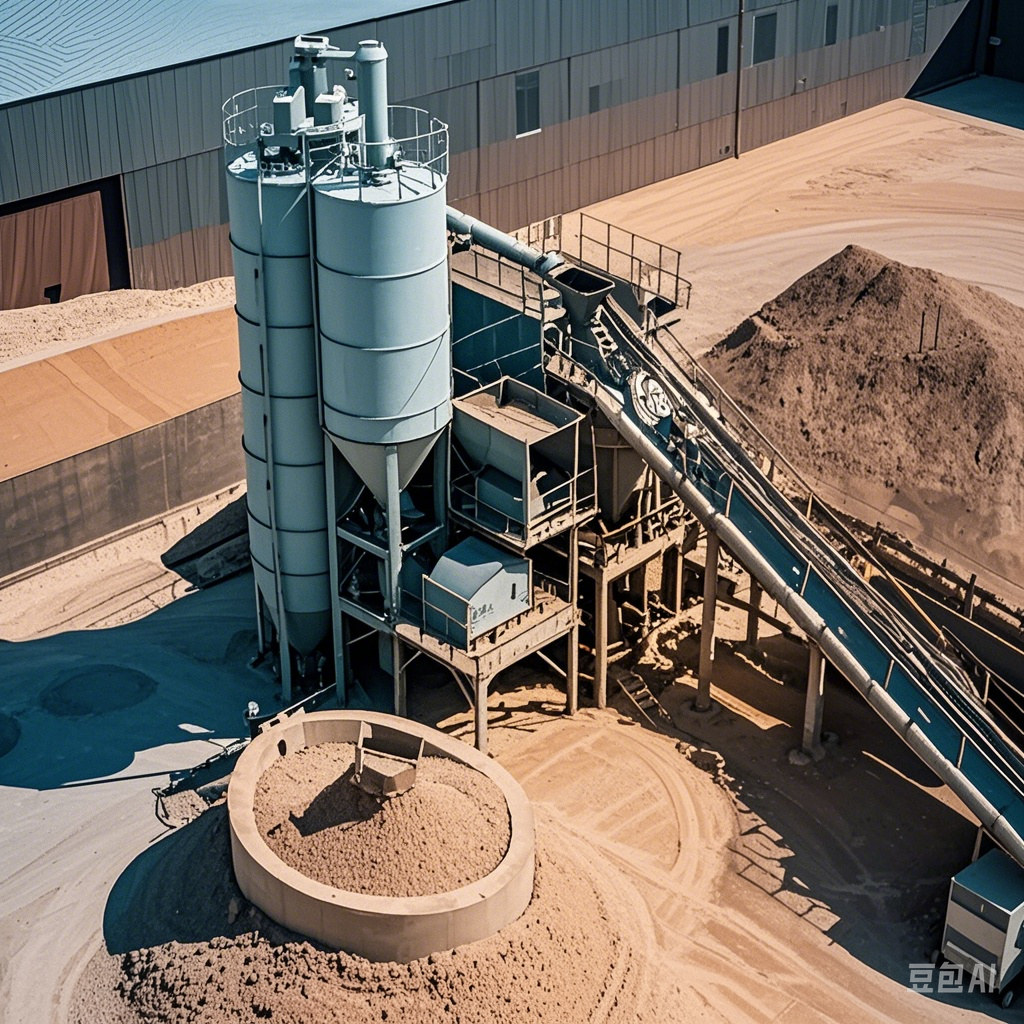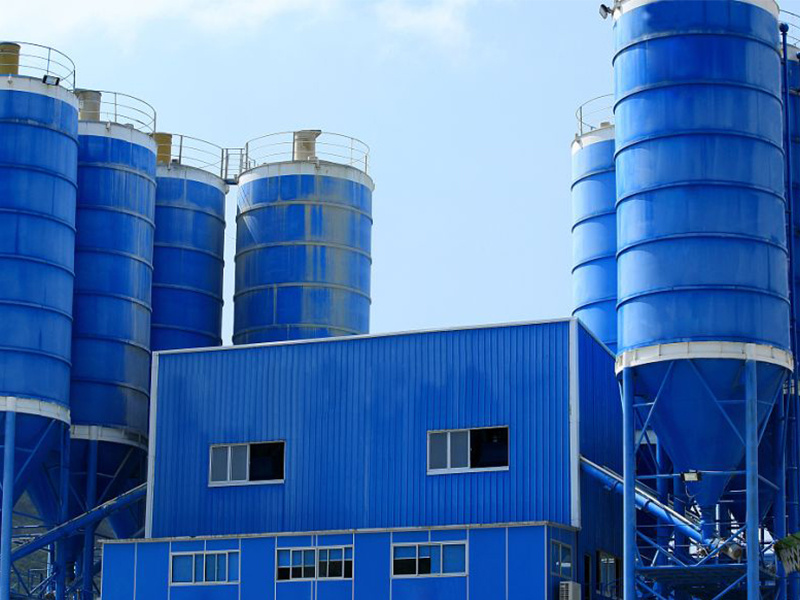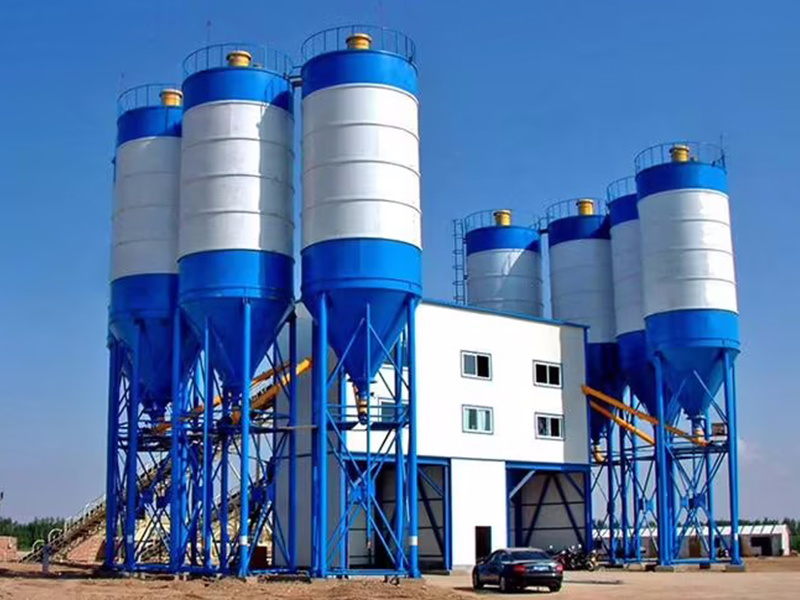10
2025
-
02
Comprehensive exploration of intelligent transformation of mixing stations
**Comprehensive Exploration of Intelligent Transformation of Mixing Stations**
In recent years, the construction industry has witnessed significant advancements driven by technology. Among these advancements, the intelligent transformation of mixing stations has emerged as a key focus area. This transformation not only enhances efficiency and productivity but also contributes to sustainability and quality control in construction processes. This article delves into the various aspects of the intelligent transformation of mixing stations, including its significance, technological components, benefits, challenges, and future prospects.
The significance of intelligent transformation in mixing stations cannot be overstated. Traditional mixing stations often rely on manual operations, which can lead to inconsistencies in material quality, inefficient resource utilization, and increased labor costs. By integrating intelligent technologies, mixing stations can automate processes, optimize resource allocation, and ensure precise mixing ratios. This transformation aligns with the broader trend of Industry 4.0, where digitalization and automation are reshaping manufacturing and construction landscapes.
At the heart of intelligent transformation are several technological components that facilitate automation and data-driven decision-making. One of the primary technologies involved is the Internet of Things (IoT). IoT devices can monitor various parameters such as temperature, humidity, and material flow in real-time, providing valuable data that can be analyzed to improve operations. Additionally, artificial intelligence (AI) plays a crucial role in predicting equipment failures, optimizing mixing processes, and enhancing quality control. Machine learning algorithms can analyze historical data to identify patterns and suggest improvements, leading to more efficient operations.
Another essential component of intelligent mixing stations is the integration of advanced software systems. These systems enable centralized control and monitoring of mixing processes, allowing operators to make informed decisions quickly. For instance, cloud-based platforms can store and analyze data from multiple mixing stations, providing insights into performance metrics and operational efficiency. Furthermore, these platforms can facilitate communication between different stakeholders, ensuring that everyone is aligned on project goals and timelines.
The benefits of intelligent transformation in mixing stations are manifold. Firstly, it leads to increased efficiency and productivity. Automated processes reduce the time required for mixing and allow for continuous operation, thereby maximizing output. Secondly, the use of intelligent technologies enhances the quality of mixed materials. Precise control over mixing ratios and conditions ensures that the final product meets the required specifications, reducing the likelihood of defects and rework. Additionally, the automation of labor-intensive tasks can lead to cost savings, as fewer workers are needed to operate the mixing station.
Moreover, the intelligent transformation contributes to sustainability in construction. By optimizing resource utilization and minimizing waste, mixing stations can significantly reduce their environmental impact. For instance, IoT sensors can monitor material usage in real-time, allowing for adjustments that minimize excess consumption. Furthermore, the ability to recycle materials and reuse by-products becomes more feasible with intelligent systems, promoting a circular economy within the construction industry.
Despite the numerous advantages, the intelligent transformation of mixing stations also presents challenges that need to be addressed. One of the primary challenges is the initial investment required for upgrading existing systems. The costs associated with acquiring new technologies, software, and training personnel can be substantial. Additionally, there may be resistance to change from employees accustomed to traditional methods. Ensuring that staff are adequately trained and comfortable with new technologies is crucial for a successful transition.
Another challenge is the integration of different technologies and systems. Mixing stations may already have legacy systems in place that are not compatible with new intelligent technologies. Developing seamless integration between these systems is essential for maximizing the benefits of transformation. Furthermore, data security and privacy concerns must be considered, as the increased connectivity of IoT devices can expose mixing stations to cyber threats.
Looking ahead, the future of intelligent transformation in mixing stations appears promising. As technology continues to evolve, we can expect further innovations that will enhance the capabilities of mixing stations. For instance, advancements in AI and machine learning will lead to even more sophisticated predictive analytics, allowing for proactive maintenance and process optimization. Additionally, the integration of augmented reality (AR) and virtual reality (VR) technologies could revolutionize training and operational procedures, providing immersive experiences that enhance learning and efficiency.
In conclusion, the intelligent transformation of mixing stations represents a significant step forward in the construction industry. By leveraging advanced technologies such as IoT, AI, and cloud-based software, mixing stations can enhance efficiency, improve quality, and promote sustainability. While challenges exist, the potential benefits far outweigh the drawbacks. As the industry continues to embrace digital transformation, mixing stations will play a pivotal role in shaping the future of construction, paving the way for smarter, more efficient, and environmentally friendly practices. The journey towards intelligent transformation is not merely a trend but a necessity for the evolving demands of the construction sector.
Concrete Mixing Plant,Intelligent transformation
Related News
Yantai Zhongye Leading Green Building Materials Development and Setting the Benchmark for High-Quality Concrete Mixing
Jan 23,2025
Vertical shaft mixer, concrete mixing station
Vertical shaft mixer has been more and more widely used in concrete mixing stations
Jul 30,2024
Concrete mixers and concrete batching machines are two kinds of machinery and equipment commonly used in the construction industry.
Jul 30,2024
YANTAI ZHONGYE EQUIPMENT AND MACHINARY CO.,LTD
WA:+86 19853565591
E-mail: barry@ytzymm.com
No.2 Guangdong Road, Haiyang Industry Park, Yantai City, Shandong Province






